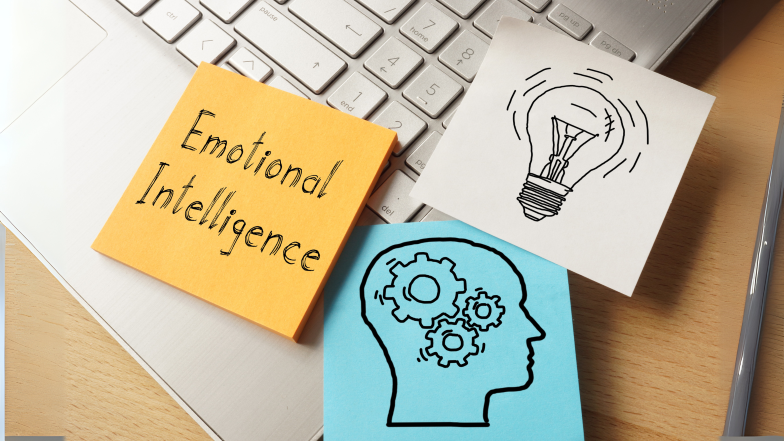By Shadia Sbait- MA in Information Security & Management
The digital age presents unprecedented challenges to young people’s emotional well-being, impacting their mental health and overall development. Cyberbullying, online harassment, exposure to violent or disturbing content, and the pervasive nature of social media contribute significantly to anxiety, depression, loneliness, and a range of other mental health issues. These challenges often manifest in ways that differ from traditional forms of stress, requiring a nuanced understanding and a tailored approach to support and intervention. Equipping teenagers and children with effective emotional management skills is, therefore, not merely beneficial but crucial to their ability to navigate these complexities and thrive in the digital landscape. This involves cultivating a deep understanding and management of their feelings, developing robust emotional intelligence, and fostering self-awareness as a foundation for ongoing self-improvement strategies. Just as academic skills are diligently taught and reinforced, emotional literacy demands equal attention as a key component of a holistic education and responsible parental guidance.
Emotional intelligence, as highlighted in research focusing on professional development, particularly for graduate engineers (Riemer, 2001), plays a pivotal role in managing stress, building resilience, and fostering positive mental health. Self-awareness, a cornerstone of emotional intelligence, empowers individuals to recognize and understand their emotions – both positive and negative – and how these emotions shape their behavior and relationships. This self-knowledge is the critical first step toward self-regulation, enabling teenagers to manage intense emotions, such as anger, frustration, sadness, or fear, in constructive and healthy ways. Rather than suppressing or ignoring these feelings, which can exacerbate problems, self-regulation teaches them to respond appropriately to challenging online interactions and experiences. This can involve techniques such as deep breathing exercises, mindfulness practices, cognitive reframing, and engaging in physical activity to dissipate negative energy. Encouraging self-reflection through journaling, mindful moments, or guided meditation allows young people to develop a more profound understanding of their inner world, ultimately building their capacity to anticipate and respond to potential stressors more effectively.
Strategies for enhancing self-awareness are multifaceted and should be integrated into both formal and informal learning environments. Reflective exercises, such as journaling about online experiences, encourage teens to articulate and process their emotions associated with specific events. Mindfulness practices, like meditation or yoga, can help them cultivate present moment awareness, reducing the tendency to overreact to online provocations or anxieties. Seeking constructive feedback from trusted adults, such as parents, teachers, mentors, or therapists, offers valuable external perspectives on their behavior and emotional responses. Open and non-judgmental conversations about online experiences, both positive and negative, provide crucial opportunities for teens to normalize their emotions, process challenging situations, and learn from mistakes. Parents and educators play a vital role in fostering these open lines of communication, creating a safe space for discussion where children feel comfortable expressing their feelings without fear of judgment or reprimand. Focusing on collaborative problem-solving and promoting a growth mindset helps children develop a sense of agency and empowers them to take proactive steps to improve their well-being.
Internet addiction, a growing public health concern, demands a comprehensive approach addressing both the addictive behavior and the underlying emotional issues. Recognizing and addressing the triggers and consequences of excessive internet use is essential to understanding the problem and developing appropriate intervention strategies. This involves identifying specific online activities or platforms that contribute to the addictive behavior, and understanding the emotional needs and motivations that drive this behavior (e.g., seeking escape from stress, loneliness, or boredom; pursuing validation through likes or comments). Strategies for managing internet addiction can include setting time limits for online activities, identifying alternative activities that provide comparable gratification, and seeking professional help when necessary. Addressing underlying anxieties, depression, or other emotional insecurities through therapy or counseling can be highly effective in disrupting the cycle of addiction and promoting healthier emotional coping mechanisms. The use of technology and apps to monitor screen time and limit access to certain websites or applications can be helpful adjuncts to therapeutic approaches.
Ultimately, fostering the emotional well-being of teenagers and children in the digital age demands a holistic and collaborative approach involving parents, educators, mental health professionals, and technology developers. Integrating emotional management skills into educational curricula, equipping parents with effective communication strategies, and providing readily accessible mental health services are essential steps in equipping young people with the resilience, coping mechanisms, and emotional intelligence they need to navigate the online world safely and thrive. This necessitates a paradigm shift, not only in how we teach technical skills related to digital literacy but also in how we cultivate empathy, self-awareness, and resilience, enabling them to effectively address issues such as cyberbullying, online harassment, and excessive screen time. The goal is to empower them to not only survive but flourish in the ever-evolving digital environment.
References:
Chopra, P. K., & Kanji, G. K. (2010). Emotional intelligence: A catalyst for inspirational leadership and management excellence. Total quality management, 21(10), 971-1004.
Riemer, M. J. (2001). IQ versus EQ: Emotional intelligence and the graduate engineer. In Proc. 5th Baltic Region Seminar on Engng. Educ (pp. 79-82).


Leave a Reply